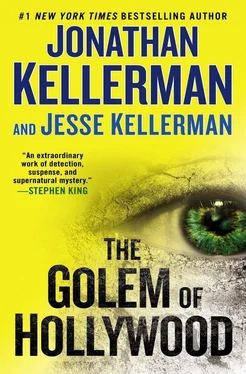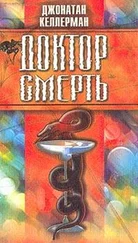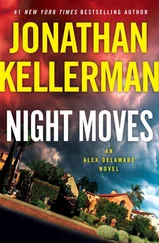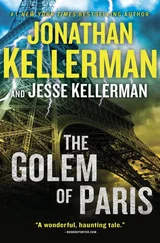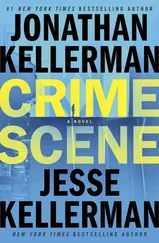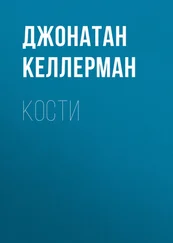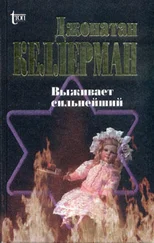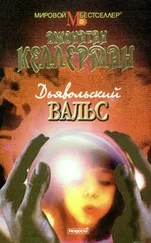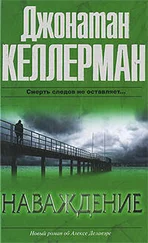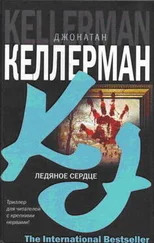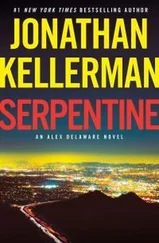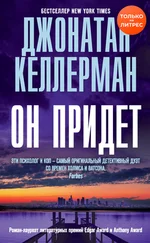Jonathan Kellerman, Jesse Kellerman
The Golem of Hollywood
PRAGUE, CZECH REPUBLIC
SPRING 2011
Heap had followed the girl for days.
The watch was an important part of it, the most delicious part: sinking into the background while that wonderful brain of his roared in high gear, eyes, ears, everything finely tuned.
People tended to underestimate him. They always had. At Eton: two nights locked in a broom closet. At Oxford, they laughed, they did, the horsefaced girls and the cooing boys. And dear Papa, Lord of the Manor, Chancellor of the Purse Strings. All that school and you a bloody office boy.
But underestimated is close to unnoticed.
Heap capitalized on that.
She could be any girl who struck his fancy.
Eye the herd.
Cull.
The bright-eyed brunette in Brussels.
Her virtual twin in Barcelona.
The early work, glorious countryside afternoons, honing his technique.
The unmistakable tingle came on him like a fit of sick. Though Heap wasn’t fool enough to deny that he preferred a certain species: dark hair, sharp features. Lower class, not too bright, not bad-looking but well shy of pretty.
Smallish body, except he demanded a big chest. The soft, yielding pressure never failed to excite.
This one was perfect.
He had first spotted her walking east along the Charles Bridge. He’d been skulking round for two weeks by then, taking in the sights, waiting for an opportunity to present itself. He liked Prague. He’d visited before and never left disappointed.
Among the jean-clad magpies, the wattled American tourists, the leather-voiced buskers, and the minimally talented portrait artists, she had stood out for her modesty. Limp skirt, tight hair, focused and grim, she hurried along, cheeks carved out by the midmorning glare off the Vltava.
Perfect.
He tried to follow her but she melted into the crowd. The next day, he returned, hopeful, prepared, attentive. Opening his guidebook, he pretended to reread a gray box headed Did you know? The bridge had eggs mixed into its concrete for added strength. Good King Charles IV had commandeered every last egg in the kingdom, and they had obeyed, the stupid, slobbering masses, showing up to place them obsequiously at his royal feet.
Did Heap know?
Yes, he did. He knew everything worth knowing and much besides.
Even the guidebook underestimated him.
She passed again at the same time. And the day after that. Three days running he watched her. A girl of fixed habits. Lovely.
Her first stop was a café near the bridge. She donned a red apron, cleared tables for change. At dusk, she left Old Town for New Town, exchanged the red apron for a black one, bussing trays and refilling steins at a beer hall that, by the smell of it, catered to the locals. Photos of the entrées in the window showed sausages smothered in that vile, muddy sauce they put on everything.
From beneath the trolley stand, Heap watched her flit here and there. Twice passersby paused to ask him a question in Czech, which Heap took to mean that he appeared, as ever, unremarkable. He replied, in French, that he spoke no Czech.
At midnight, the girl finished mopping up. She doused the restaurant’s lights, and a few minutes later, a window two floors up blinked yellow, and her pale arm drew the blind.
It would be a squalid rented room, then. A sad and hopeless life.
Delicious.
He considered finding a way into her flat. Blitzing her in her own bedroom.
Appealing notion. But Heap despised senseless risk. It came of watching Papa burn thousands on football, cricket, anything involving imbeciles and a ball, pouring the fortune of centuries down the grimy throats of bookmakers. Never the most discriminating chap, Papa. How he loved to remind Heap that it would all be gone before Heap saw a penny. Heap was nothing like him and therefore deserved nothing.
Someday Heap would let him know what he thought of that.
To the task at hand: no sense changing the pattern. The pattern worked. He’d take her on the street like the others.
Leaving an empty-eyed shell propped against a dustbin or a wall, waiting to be discovered by some privileged citizen of the free world.
Heap examined an unmarked door to the right of the restaurant, six anonymous buzzer pushes. Never mind her name. He preferred to think of them numerically. Easier to catalog. He had the librarian’s spirit in him, he did. She would be number nine.
—
On the seventh night, a Thursday, Number Nine went up to her room as usual but reemerged soon after, a feather duster in one hand, a folded square of white cloth in the other.
He gave her slack, then followed north as she crossed into Old Town Square, uncomfortably alive with pedestrians. He clung to shadows on Maiselova as they entered Josefov, the former Jewish quarter.
He had come this way days before, while reacquainting himself with the city. It was the thing to do, see the old Jewish places. Dutifully he had elbowed through the revolting gawking swarms, tour guides prattling about Slavic tolerance while their charges snap snap snapped away. Heap didn’t care enough about Jews as a group to summon genuine loathing. He regarded them with the same contempt he had for all lesser humanity, which included everyone except himself and a select few. Those Jews he’d known at school were self-satisfied twits laboring to be more Christian than the Christians.
The girl turned right at a shambling yellow wreck of a building. The Old-New Synagogue. Curious name to go along with a curious design. Part Gothic, part Renaissance, the result a rather clumsy porridge, homely crenellated roof and skimpy windows. Far more old than new. But then Prague had no end of old buildings. They were common as streetwalkers. He’d drunk his fill.
An alleyway unfurled along the synagogue’s south side, ending at a wide set of ten steps that in turn ran up to the shuttered shops of Pařížská Street. Heap wondered if Nine was headed there, to tidy up at one of the boutiques.
Instead she went left at the foot of the steps, disappearing behind the synagogue. Heap crept along the alley in crepe-soled shoes, reaching the steps and stealing a glance.
She stood on a small cobbled terrace, facing the rear of the synagogue, into which was set an arched iron door, rudely studded. A trio of rubbish bins constituted the exterior decor. She had flapped open the white cloth and was tying it around her waist: yet another apron. Heap smiled to imagine her closet, nothing but aprons in every color. So many secret identities she had, each more wretched than the last.
She picked up the feather duster from where she’d laid it, against the wall. She shook it out. Shook her head, as well, as if banishing drowsiness.
Industrious little charwoman . Two full-time jobs and now this.
Who said the work ethic was dead?
He might have taken her right then, but a duet of drunken laughter came bounding along Pařížská, and Heap continued slowly up the steps, watching the girl peripherally.
She withdrew a key from her jeans and let herself into the synagogue through the iron door. The lock clanked.
He took up a vigil beneath a lamppost, opposite the synagogue’s dark visage. A series of metal rungs in the brick ran up to a second arched door, a shabby wooden echo of the iron one, thirty-five feet off the ground and opening illogically onto thin air.
The garret. Did you know? There, the world-famous (according to whom, Heap wondered) Rabbi Loew had conjured the golem, a mythical mud-creature who roamed the ghetto, protecting its inhabitants. The selfsame rabbi had a statue of himself in a grand square, he did. While following the girl, Heap had pretended to stop and take its picture.
Читать дальше
